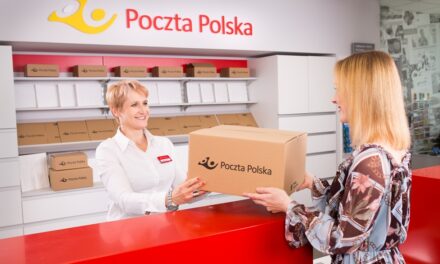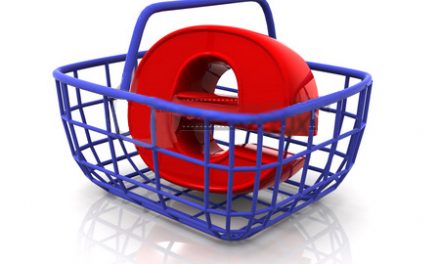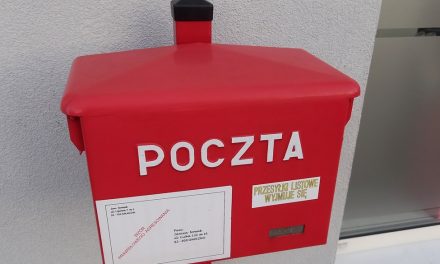
Delivering a profit (Poland)
The 34-year career veteran of Poczta Polska, appointed director of the Warsaw postal district in February, has a sharp eye fixed on competitive delivery services in the city through which most of the nation's postal traffic flows – especially as the market gets ready to take a few more steps toward liberalization forced by European Union (EU) membership.
"Undoubtedly, the greatest challenge is to face competition along with the growing expectation(s) of our customers," Grobelski said. "We are afraid of EU-member countries' national operators entering our market."
As one of 10 candidate countries set to join the EU in 2004, Poland must adopt pan-European postal regulations that will pry open its postal market even more. Other operators have been allowed to have a share of messenger and parcel delivery services, but Poczta Polska maintains a monopoly on letter deliveries.
Adjusting to EU standards will demand the passage of a new postal law this year that would dent Poczta Polska's monopoly on letters weighing less than 2,000 grams (70 ounces) in both domestic and international traffic. The legislation now being drafted by the Infrastructure Ministry will lower this amount to 350 grams, although there are rumors that it will be dropped to 100 grams, Grobelski said. The new law will also establish EU regulations regarding service accessibility, delivery time and accountancy requirements with new rules for cost and profit calculation.
"Highway to heaven"
Poczta Polska has been losing market share for a couple of years and is now trying to reverse the trend and recover customers and market segment, said Leszek Kwiatek, Poczta Polska's general since last December.
"This company has to be changed to face competition," he said. "The main role of this management is to prepare Poczta Polska for liberalization, perhaps even for the complete abolishment of the monopoly."
To brace itself for liberalization, the 500-year-old national postal service has embarked on a new and costly strategy, including a spiffy new logistics center in Warsaw, a nationwide branch computerization project and new prices and services – some of which have already been implemented – to help meet EU requirements and fend off competition.
For starters, within two to three months Poczta Polska is set to open its new z³. 450 million ($109 million) sorting center to ease the logjam of letters passing through Warsaw and directed to other areas of the country. The largest and most modern one of its kind in Poland, the center in Wyczó³ki will be located near Okêcie airport and the planned highway running through the southern part of Warsaw. The new facility, which Grobelski calls the "highway to heaven," will house modern machinery for sorting letters, packages and newspapers. Poczta Polska already has similar facilities in Katowice, £ódŸ and Poznañ, but Warsaw will serve as the national sorting center.
"If we accomplish our plans, this will contribute to a tremendous acceleration in our activities; if we fail, Warsaw will become a bottleneck for letters sent across Poland and there will be long delays in deliveries," Grobelski said.
Crucial IT project
In addition, Poczta Polska is implementing a z³. 176 million ($42.9 million) IT system that will connect some of its 8,200 outlets to a single platform to help manage the company and introduce new services based on a wide-area network (WAN). The IT system, whose network center will be located in Bydgoszcz, roughly 250 kilometers northwest of Warsaw, will eliminate Poczta Polska's hardware and software saturation and bring redundant data and calculations under the common platform.
Kwiatek said the IT project was crucial for Poczta Polska to compete. In the first stage 2,500 postal outlets will be hooked up, and another 4,200 will be added later. The system will require specific software and enable Bank Pocztowy, in which the national post owns a majority stake, to expand its operations. The IT system will also be accessible for small companies and municipal offices. While the software contract will be completed this year, according to Kwiatek, the WAN will take longer to implement. So far, all the regional centers and the Warsaw district are hooked into the system, but this mini-network is still too small to use the management support software.
Priority changes
In the meantime, Poczta Polska has already introduced other competitive changes, some related to EU specifications. It recently announced, for example, that postmen would deliver mail on Saturdays in addition to normal delivery days. The company also lowered prices for messenger services in March and set new prices on mass mailings by introducing a new weight category. The national post is also planning to introduce different categories of delivery services by dividing packages into next-day priority and economy deliveries. Priority service will begin in mid-2002.
"I say this with full confidence, it will not be a hard process," Grobelski said about Poczta Polska's adjustment to EU postal regulations. "In most aspects we are better than the European average. The only thing we lack is delivery speed."
Other market players agree. "The better and faster service they make here the less market they may lose," said Aleksander Morozowski, the chairman of the management board of Servisco, an express parcel delivery service owned by Deutsche Post. He pointed out that in Scandinavian countries where the postal markets have been fully liberalized national postal services control no more than 10% of the market.
Money matters
Poczta Polska, which employs 100,000 nationwide, plans to invest z³. 3 billion-z³. 4 billion ($731 million-$975 million) over the next few years to primp itself for increased competition under market liberalization, but can only afford about z³. 400 million ($97.6 million) of its own money on an annual basis, Kwiatek said. About z³. 420 million ($102.4 million) is earmarked for investments in 2002. Where Poczta Polska will get the money to finance its plans won't be determined until the national post hammers out financing details with the government.
"In the future Poland will be an EU member, and as the volume of services will grow we will need the investment to deal with it and to compete effectively," Kwiatek said. After liberalization the national post would be a "hybrid organization" – a public institution obliged to offer certain services but one that acquires profits from competition, he said.
But with expectations of just under z³. 100 million ($24.4 million) profit on z³. 5.8 billion ($1.4 billion) revenue this year, Poczta Polska must rely on other sources. Kwiatek said he expects only about z³. 10 million ($2.4 million) in federal subsidies in 2002. But he added that EU law would require the state to subsidize Poczta Polska if its range of service offers were unprofitable and it continued to be the dominant operator on the Polish postal market. In addition, Poczta Polska might mull the possibility of issuing bonds in two or three years or selling some of its assets to raise extra cash.
As part of its funding strategy, Kwiatek wants to increase the number of outlets of Bank Pocztowy, one of the national post's core holdings, which shows some promise of being a profitable enterprise for selling financial services. "We think that just as it is the case with other European operators, shares of ordinary postal services in revenue will decrease and other services will gain importance," Kwiatek said.
Competitors ready to deliver
Not everyone agrees that the heavy investment will fortify Poczta Polska's market position.
"The problem I foresee is (that) this investment does not automatically grant Poczta Polska any service advantage against the competition," said Robert Mianowski, general director of TNT Express Worldwide Poland, which specializes in the international delivery of express documents and small parcels. "It would partially match today's advantage competitors have over Poczta Polska."
Market players also indicate that the new round of market liberalization will not affect Poczta Polska's domination of letter deliveries under 350 grams to any great extent.
"This sector would not always be attractive enough for private operators due to its low profitability," Mianowski said. "As a public operator Poczta Polska is obliged to provide the service in all areas, even those where there is no sufficient economic justification."
It's also unlikely that further liberalization will prompt any new big entrants to set up operations in Poland as some at Poczta Polska fear. Most major European mail services have already established operations in Poland, such as Deutsche Post's Servisco and DHL express document delivery, Swedish Post's courier company Masterlink Express and the Dutch Post's TNT. Smaller companies, however, may have an advantage.
"Very symptomatic for this market is the rapidly increasing number of smaller operators competing with PP [Poczta Polska] in both prices and services," Mianowski said.
Mixed mission
But no matter what services it offers to improve its market position, Poczta Polska will always be at a disadvantage as a state-owned public service company that must focus on its service mission over profit – unlike other business units, according to Grobelski.
"We have the task of offering public services, that is, satisfying the needs of society, which does not fit well with economic reality," he said. "From an economic point of view we should liquidate many outlets located in the country but this is not possible because of social matters. It all costs, and the competition does not have to worry about that."











